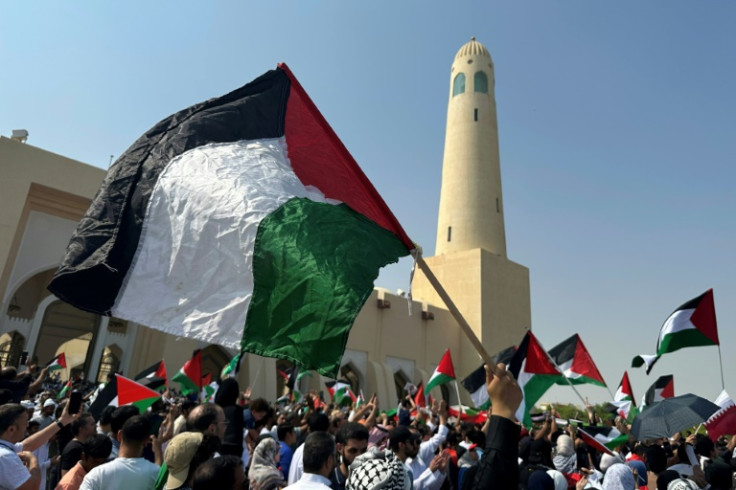Qataris 'Strike Back' At Gaza Mediation Critics

Criticism of Qatar over its role as a mediator between Israel and Hamas has prompted a rare pushback by the Gulf state against its detractors, analysts have said.
Qatar, which has hosted Hamas's political leadership since 2012 with the blessing of the United States, has been engaged in months of behind-the-scenes talks on a possible truce in Gaza and the release of Israeli hostages in exchange for Palestinian prisoners held in Israeli jails.
But, as talks have stalled, and in the face of calls -- particularly from Israel and the United States -- for Qatar to exert pressure on Hamas, the gas-rich emirate has warned it could walk away as a mediator.
This week, foreign ministry spokesperson Majed al-Ansari said the decision to re-evaluate its role was prompted by frustration with political attacks including from figures in the government of Israeli Prime Minister Benjamin Netanyahu.
"They all know what the Qatari role is, its nature, and its details during the previous stage and they lied," the Qatari spokesman said, referring to November's week-long truce when scores of Israeli and foreign hostages were released through Doha's mediation.
Neil Quilliam, a Middle East analyst, said Qatar's reaction was at odds with the norms of mediation.
"Mediators don't usually strike back," the Chatham House specialist told AFP.
The Qataris "have been taking so many hits from the Israelis, Netanyahu directly, and members of (US) Congress, the way I look at it they're just at the end of their tether," Quilliam said.
Geopolitics expert James Dorsey called Qatar's response a "fightback".
It was also "stunning for one of the parties that supposedly needs that mediation to attack the mediator", he said, referring to the Israeli criticism.
In January, Qatar said Netanyahu had damaged negotiations when leaked recordings emerged of the Israeli premier calling Doha a "problematic" mediator because of its relationship with Hamas.
A month later, addressing American Jewish leaders, Netanyahu said Qatar needed to be pressured into getting Hamas to release Israeli hostages, claiming the group is financially dependent on the Gulf state.
Ansari responded on X at the time, saying Qatar rejected the "empty accusations" and that Qatari aid payments for the people of Gaza, rather than Hamas, were carried out in full coordination with Israel and the United States, as Netanyahu "personally knows".
The war began when Hamas launched an unprecedented attack on Israel that resulted in about 1,170 deaths, mostly civilians, according to an AFP tally based on official Israeli figures.
Israel's military has waged a retaliatory offensive against Hamas that has killed more than 34,000 people in Gaza, most of them women and children, according to the health ministry in the Hamas-run territory.
Palestinian militants seized about 250 Israeli and foreign hostages during the October 7 attack on Israel, but dozens were released during the week-long truce in November.
Israel estimates 129 remain in Gaza, a figure that includes 34 who the military says are dead.
Dorsey said Qatar's response had been particularly pointed to critics from the United States, which "really touch on the core interests of Qatar" because Doha's close relations with Washington provided "one of its security lifelines".
The Gulf monarchy hosts the region's largest US military base and has been designated by Washington as a major non-NATO ally.
Earlier this month, the Qatari embassy in Washington issued a statement rebuking Democratic lawmaker Steny Hoyer over his calls for the United States to re-evaluate its relationship with Qatar.
In November, Qatar's ambassador to Washington took issue with Republican Senator Ted Budd, who asked how long Doha would continue to host Hamas, who he called "terrorists with American blood on their hands".
This week, Ansari said Hamas's political leadership would stay in Doha as long as their presence remained beneficial to mediation.
However, he added a final decision on Hamas remaining was still open to reassessment as Qatar considered its role.
Raising the possibility of Hamas leaving was "strategic posturing", Quilliam said.
Qatar, he said, had indicated it could "walk away... knowing full well the US wouldn't want that to happen or allow that to happen".
© Copyright AFP 2024. All rights reserved.











